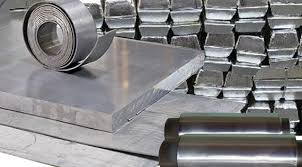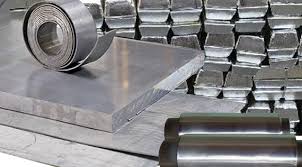
Investment bank Goldman Sachs wrote in a note on Friday that an extension of this year's price rally in base metals and bulk commodities in China into next year will depend on these five important factors. The bank also listed the five factors.
Property demand
In China, property investment and new projects remain resilient with investment up 6 percent in November from a year ago despite restrictions to curb rapid price appreciation in tier 1 and 2 cities. And in te same period there have been a rise in new projects by 5 percent.
Goldman Sachs analysts wrote in a note that investment growth continued to be supported in the following 12 to 18 months, before declining significantly, even when Chinese property price growth started to decelerate as indicated by previous experiences from 2008, 2010-2011 and 2013-2014.
Liquidity
Goldman said that in a loose financial environment such as at the present in China, real interest rate or when the interest rates are adjusted for inflation, are modest.
"A tightening of monetary policy does not necessarily lead to strength in property investment and metals demand. In our view, it is real rates that drive property investment…because real rates reflect actual capital costs and effectively affect investment decisions," wrote Goldman analysts.
Infrastructure
The investment bank said that as policymakers "remain determined to maintain a high level of GDP growth," the Chinese government is likely to continue spending on infrastructure into 2017. Beijing has set itself a target of 6.5 percent average GDP growth over the second half of this decade and has committed to this target, the investment bank note said.
China has invested heavily in infrastructure projects in the recent years and is expected ot continue to do so in the future.
Over the next three years, the Chinese government plans to invest CNY4.7 trillion ($720 billion) on 303 transport infrastructure projects in the country, the government had announced in May earlier this year.
Supply-side reform
A supply shortage could result in 2017 as the Chinese government is mopping up excess capacity in many sectors. The investment bank noted that a number of commodities including coal, crude, steel and iron ore saw a contraction in supply in recent times.
Re-stocking
China will need to replenish its commodities stockpile due to the fact that that there has been a supply-side management and a credit easing which was done to stimulate demand and to keep growth up in the economy.
Indications of cautious production expansion were suggested at the same time by a moderately weak investment in China's mining and smelting industry.
"Therefore, if demand growth does prove to be strong while capacity growth pauses, we should be able to see prices remain elevated for longer," Goldman said
(Source:www,cnbc.com)
Property demand
In China, property investment and new projects remain resilient with investment up 6 percent in November from a year ago despite restrictions to curb rapid price appreciation in tier 1 and 2 cities. And in te same period there have been a rise in new projects by 5 percent.
Goldman Sachs analysts wrote in a note that investment growth continued to be supported in the following 12 to 18 months, before declining significantly, even when Chinese property price growth started to decelerate as indicated by previous experiences from 2008, 2010-2011 and 2013-2014.
Liquidity
Goldman said that in a loose financial environment such as at the present in China, real interest rate or when the interest rates are adjusted for inflation, are modest.
"A tightening of monetary policy does not necessarily lead to strength in property investment and metals demand. In our view, it is real rates that drive property investment…because real rates reflect actual capital costs and effectively affect investment decisions," wrote Goldman analysts.
Infrastructure
The investment bank said that as policymakers "remain determined to maintain a high level of GDP growth," the Chinese government is likely to continue spending on infrastructure into 2017. Beijing has set itself a target of 6.5 percent average GDP growth over the second half of this decade and has committed to this target, the investment bank note said.
China has invested heavily in infrastructure projects in the recent years and is expected ot continue to do so in the future.
Over the next three years, the Chinese government plans to invest CNY4.7 trillion ($720 billion) on 303 transport infrastructure projects in the country, the government had announced in May earlier this year.
Supply-side reform
A supply shortage could result in 2017 as the Chinese government is mopping up excess capacity in many sectors. The investment bank noted that a number of commodities including coal, crude, steel and iron ore saw a contraction in supply in recent times.
Re-stocking
China will need to replenish its commodities stockpile due to the fact that that there has been a supply-side management and a credit easing which was done to stimulate demand and to keep growth up in the economy.
Indications of cautious production expansion were suggested at the same time by a moderately weak investment in China's mining and smelting industry.
"Therefore, if demand growth does prove to be strong while capacity growth pauses, we should be able to see prices remain elevated for longer," Goldman said
(Source:www,cnbc.com)





